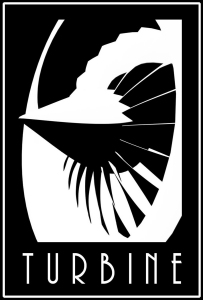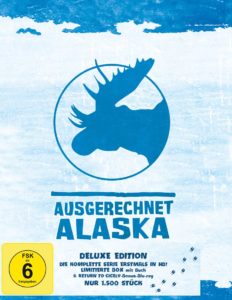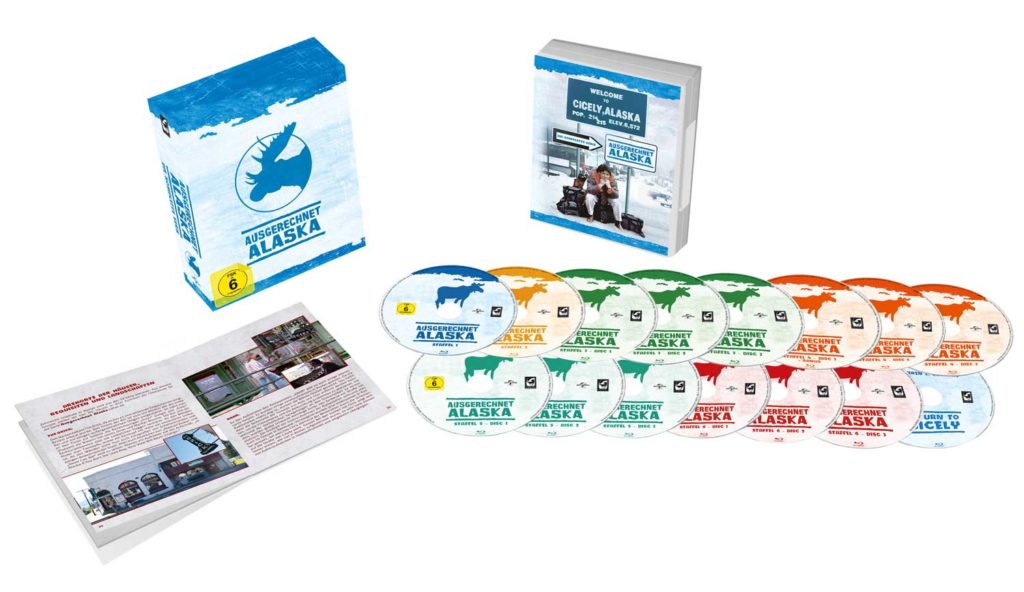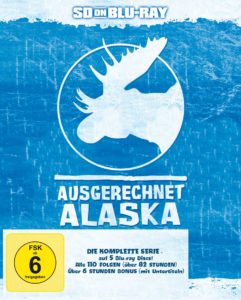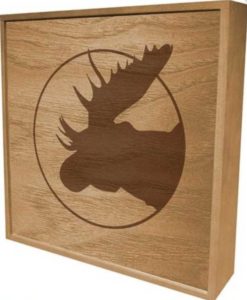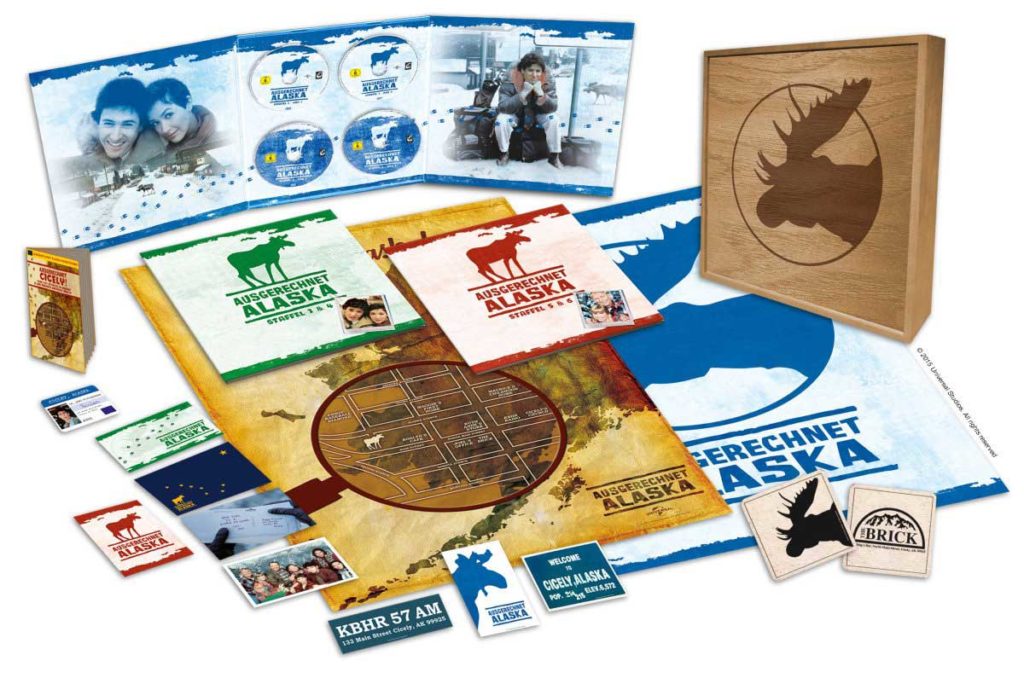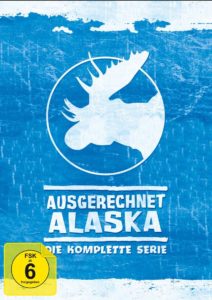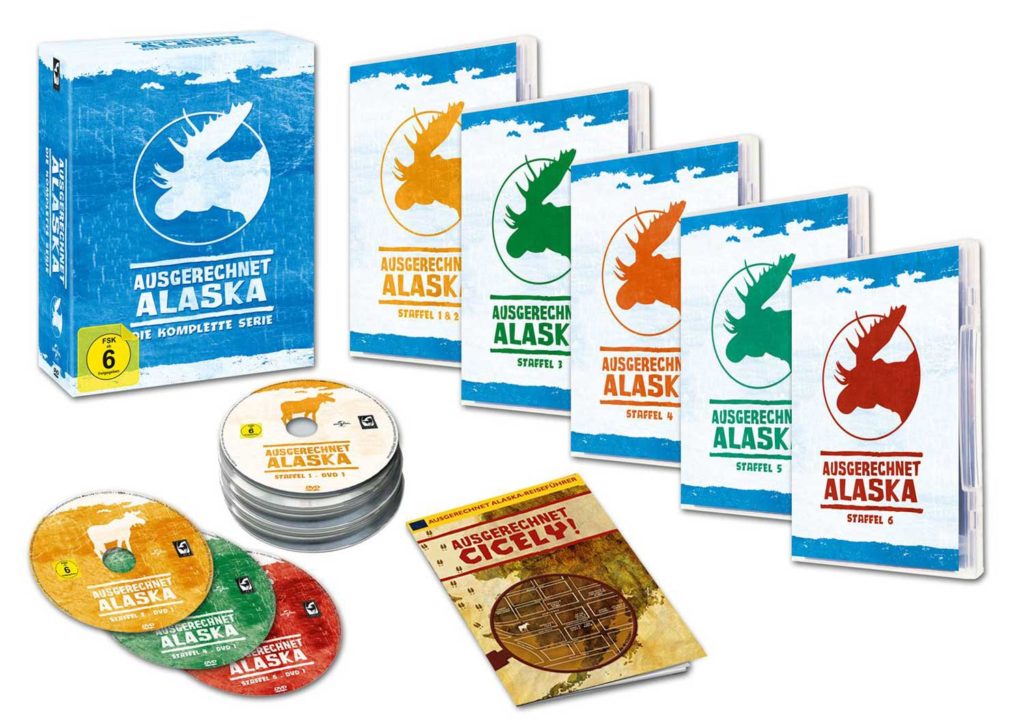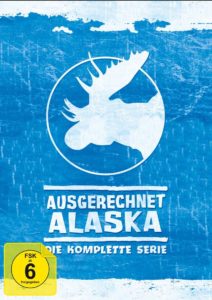Interview with director Peter O’Fallon
Wolf Jahnke: Universal Studios started NORTHERN EXPOSURE in an unusual way not only with a pilot, but with a whole (small) season. Darren Burrows, who played Ed, told us about a unique atmosphere, in which the team worked hard to create something special. Did you share his impression, when you worked on Coast Mountain, far away from Hollywood?
Peter O’Fallon: The creators Josh and John had a deal with CBS called a put deal. That is eight-episode commitment on air, after the success of an earlier show. We did the show non-Union which was the only time in my carrier. It was done on the cheap because CBS and Universal had no faith in it. CBS and pretty much everyone on the executive side didn’t believe in it at all. So much, so it gave us a ton of freedom. My agent sent me the first episode and the pilot and said: “You like weird things; everybody doesn’t get this”. I read it and loved it. That experience has guided my career – the old Hollywood phrase “nobody knows anything “. Josh and John would get notes from the network and not read them, throw them out. The network put the show on in August, back then the graveyard for shows to fail. Because of that, there was a tremendous amount of freedom to make it the way we wanted. An example: The actor that played Joel’s assistant, Elaine Wiles had never acted. She auditioned and I loved the dry matter of fact way she spoke. It was hilarious. We cast her without the network’s ok, most of the actors that populated the town were hired out of Seattle theater community. Wonderful, character actors we kept saying – the weirder the better. There was a real sense of community, with all of the cast and crew. The premise was so different, it made it very exciting. But the lack of money made it pretty challenging.
How did you become the director of the second and last episode of the first season?
I had just done THIRTYSOMETHING (1987-1991) and one of the producers Scott Winatt recommended me. I had tried some unusual stuff on THIRTYSOMETHING that had worked. So, my guess is they agreed. And I spent most of my youth in small mountain towns in Colorado. I was a DJ at a radio station in Breckenridge the night John Lennon was shot. Told them that story. So maybe that’s why.
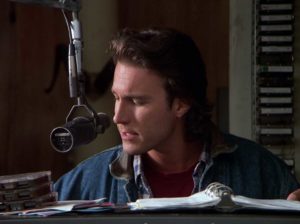
What do you remember best from this time? Are there any funny anecdotes about the actors or fellow team members?
I put John Corbett’s character, Chris in the morning, on the street in the town. I grew up in the mountains of Colorado and had a radio DJ job in Breckenridge Colorado. The studio was in on window on the street. I always found it funny that I would say hi to my friends while I was on the radio. John, after I established that, kinda hated me because he had to travel to the town for short scenes in the station.
This one of John first jobs, he was a welder in Long Beach and had done a few commercials. The character Chris was a philosophical intellectual, John was very nervous about pulling it off. I told him to say the dense lines fast, and pause on the last few, and he will be fine. He did it a few times. Smiled and laughed and said not sure what I’m saying but it sounds great.
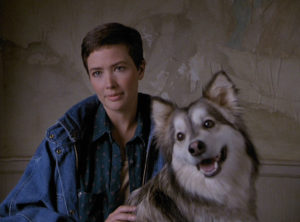
The fictitious town „Cicely“ combines a lot of old-fashioned and modern in narrative and content-wise ways. For example, there is the classic screwball couple with Dr. Joel Fleischman and the tough pilot Maggie O’Connell on the one hand and the young „Indian“ film geek Ed on the other hand. Spirituality meets science. In your touching episode „Brain, Know-how and Native Intelligence“, a medicine man with cancer meets the modern doctor Joel and gives him a positive shock. It is said, „Ciceley is a state of mind“. What did you think then or what do you think today about this film universe or the „state of mind“?
In the episode „Brains know how and native intelligence“, which originally was the 3rd episode, but they liked it and decided to make it the last. I thought there was an issue with the script, I couldn’t figure out how Chris’s newfound black Brother, shared the same father. I kept asking John Falsey and he kept telling me I would figure it out. We were shooting late one night and there was a full moon, I shot it. Next time we were in the radio station, I told Chris to say it’s a full moon and everything’s weird. It worked well we all laughed and may have helped set the tone.
Which details make NORTHERN EXPOSURE a typical tv phenomenon of the 90s? Would the show have the same impact on viewers and fans, if it would premiere today?
I loved that the show was about the people, and how quirky and strange and how acceptable that was to everyone else. I now live in a small town in Colorado again, and it’s amazing who is here. Physicist’s, hippies, PhD’s Shamans, Veterans, it’s great and is the vibe that the show captured.
We all thought the show would die quickly with the time slot it was put in and the lack of promotion. We were all very proud of it, but it was weird for the 90’s and would still be hard to make even today. It isn’t normal drama. I have a show I wrote called texico New Mexico that has a similar feel, I always wanted to make another one about the strange and wonderful vibe in a small mountain town. But if you’ve noticed there hasn’t been anything like it. I’ve been trying to make this one for a few years. People like it, but like NORTHERN EXPOSURE it’s different. Again, nobody knows anything.
+ alle 110 Folgen in HD auf Blu-ray
+ Dokumentation RETURN TO CICELY auf Bonus-Blu-ray
+ 80-seitiges Buch
+ 6 Stunden Bonusmaterial
Blu-ray-Disc:
Sprachen: Deutsch und Englisch in DTS 2.0
Untertitel: Deutsch, nur im Bonusmaterial
Bildformat: 1,33:1 (4:3 1080p24 Full-HD)
Gesamtlaufzeit: ca. 86 Stunden + Bonusmaterial
Bonusmaterial
+ Dokumentation RETURN TO CICELY auf Bonus-Blu-ray
+ Outtakes
+ unveröffentlichte Szenen
+ 80-seitiges Buch zur Serie und Produktionsgeschichte
Hier bestellen
Bitte haben Sie Verständnis dafür, dass wir eine Verfügbarkeit des Produkts nicht garantieren können.
+ alle 110 Folgen auf nur fünf Blu-rays
+ 6 Stunden Bonusmaterial
Blu-ray-Disc:
Sprachen: Deutsch und Englisch in Dolby Digital 2.0
Untertitel: Deutsch bei Bonusmaterial
Bildformat: 1,33:1
Gesamtlaufzeit: ca. 83 Stunden
Hier bestellen
Bitte haben Sie Verständnis dafür, dass wir eine Verfügbarkeit des Produkts nicht garantieren können.
+ alle sechs Staffel mit 110 Folgen auf 28 DVDs
+ hochwertigen Holzkiste mit persönlicher Editionsnummer
+ limitiert auf 3.000 Stück
+ Fan-Buch, Poster, Postkarten, Aufkleber-Set, Bierdeckel und Arzt-Ausweis
+ 6 Stunden Bonusmaterial
DVD:
Sprachen: Deutsch und Englisch in Dolby Digital 2.0
Untertitel: Deutsch bei Bonusmaterial
Bildformat: 1,33:1 (4:3)
Gesamtlaufzeit: ca. 83 Stunden
Hier bestellen
Bitte haben Sie Verständnis dafür, dass wir eine Verfügbarkeit des Produkts nicht garantieren können.
+ alle sechs Staffel mit 110 Folgen auf 28 DVDs
+ 72-seitiges Booklet
+ 6 Stunden Bonusmaterial
DVD:
Sprachen: Deutsch und Englisch in Dolby Digital 2.0
Untertitel: Deutsch bei Bonusmaterial
Bildformat: 1,33:1 (4:3)
Gesamtlaufzeit: ca. 83 Stunden
Hier bestellen
Bitte haben Sie Verständnis dafür, dass wir eine Verfügbarkeit des Produkts nicht garantieren können.
+ alle sechs Staffel mit 110 Folgen auf 28 DVDs
+ 6 Stunden Bonusmaterial
DVD:
Sprachen: Deutsch und Englisch in Dolby Digital 2.0
Untertitel: Deutsch bei Bonusmaterial
Bildformat: 1,33:1 (4:3)
Gesamtlaufzeit: ca. 83 Stunden
Hier bestellen
Bitte haben Sie Verständnis dafür, dass wir eine Verfügbarkeit des Produkts nicht garantieren können.
